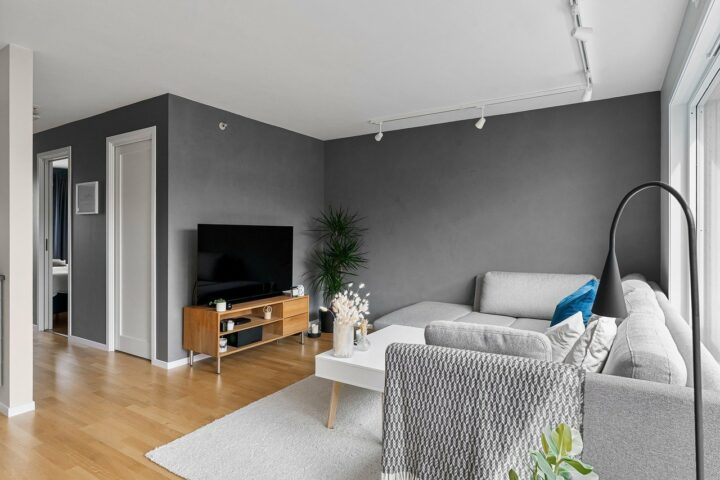Table of Contents
Virtues of Minimalism: Embracing Simplicity for a Happier Life
In a world filled with distractions and endless choices, many people are searching for clarity and purpose. Minimalism offers a path toward simplicity by encouraging individuals to focus on what truly matters in their lives. Living with fewer possessions can lead to greater joy and a clearer sense of values. Embracing the virtues of minimalism not only transforms personal spaces but also impacts mental well-being and relationships.

As individuals explore the virtues of minimalism, they often discover a mindset that prioritizes quality over quantity. This shift helps them overcome materialism, allowing for a more fulfilling life. The ripple effect of adopting minimalist principles can create a significant change in one’s approach to daily living, leading to a more intentional and meaningful existence.
Key Takeaways
- Minimalism enhances joy by simplifying life.
- Focusing on values helps overcome materialism.
- A minimalist mindset fosters intentional living.
Conceptualizing Minimalism
Minimalism is all about simplifying life by focusing on what truly matters. It promotes a lifestyle where less is often more, encouraging individuals to embrace clarity and purpose in their choices. Below are two key aspects of understanding minimalism.
Defining Minimalism
Minimalism can be defined as a lifestyle choice that emphasizes the idea of “less is more.” It encourages people to reduce clutter in their physical spaces and minds. This means letting go of unnecessary possessions, distractions, and obligations.
By doing so, individuals find room for the things that bring them joy and fulfillment. Many believe minimalism leads to a heightened sense of clarity and peace. It’s not just about owning fewer items; it’s also about prioritizing personal values over material possessions.
Virtues and Values of Less
The virtues of minimalism are found in its values. Practicing minimalism fosters virtues like simplicity, intentionality, and mindfulness. Simplicity is about making life easier by stripping away distractions. Intentionality encourages people to choose what to keep based on what enriches their lives.
Moreover, minimalism promotes mindfulness—being present and engaged in the moment.
Adopting these virtues can lead to a more meaningful existence. Instead of mindlessly accumulating, individuals make thoughtful choices, helping them connect better with themselves and their communities.
This lifestyle can create more time, space, and energy for activities that truly matter.
Practical Approaches to Minimalism
Minimalism isn’t just about owning less. It’s about creating a life that is focused and meaningful. By applying practical approaches, anyone can take control of their space and prioritize what truly matters.
Decluttering Your Space
Decluttering is the first step to embracing a minimalist life. It starts with assessing what items are essential. She can create three piles: keep, donate, and discard.
- Keep: Items used regularly.
- Donate: Things that are still useful but not needed.
- Discard: Broken or damaged items.
To make it easier, focus on one room at a time. This way, she avoids feeling overwhelmed. Setting a timer for 15-30 minutes can also help maintain focus. This structured approach leads to a feeling of control as clutter declines, allowing for a clearer mind.
Prioritizing Life’s Essentials
Once the space is decluttered, it’s time to focus on priorities. Identifying what truly matters can transform daily routines. He can ask himself these questions:
- What activities bring joy?
- Which belongings add value?
With clear priorities, he can make more mindful decisions. Choosing to engage only in activities that align with his values leads to a more satisfying life. It might involve saying no to events that feel like obligations.
Living with intention allows her to enjoy the simple things. This way, the stress of excess fades, making way for a calm, focused existence.
The Minimalist Mindset
The minimalist mindset encourages individuals to focus on what truly matters in life. It emphasizes a balanced approach to contentment and intentionality. By shifting their mindset, individuals can make better decisions and live a more fulfilling life.
Cultivating Contentment
Cultivating contentment is about appreciating what one has, rather than longing for more. This mindset involves gratitude and mindfulness.
People can practice contentment by:
- Journaling: Writing down things to be grateful for.
- Mindful living: Engaging fully in daily activities without distractions.
- Reflection: Taking time to consider life’s blessings.
This approach aligns with stoicism, which teaches acceptance of what cannot be changed. When individuals focus on their current possessions and experiences, they discover joy in simplicity.
Embracing Intentionality
Embracing intentionality means making choices that align with personal values. This involves thoughtful decision-making in every aspect of life.
Key actions to foster intentionality include:
- Setting clear goals: Knowing what matters most helps prioritize actions.
- Eliminating distractions: Reducing excess reduces noise and boosts focus.
- Saying no: It’s essential to guard time and energy for meaningful activities.
This shift in mindset allows for a more directed life. By being intentional, one can create a path that reflects their desires and values.
Overcoming Materialism
Overcoming materialism is about finding freedom from the need for excessive possessions. It focuses on letting go and making choices that enhance quality of life rather than simply accumulating more stuff.
Letting Go of Possessions
Letting go of possessions can be tough, but it is a crucial step towards freedom. Many people feel attached to their things, thinking they define who they are. However, the truth is that true happiness doesn’t come from material items.
To start, individuals can identify items they no longer use or value. This can include clothes, gadgets, or furniture. Creating a decluttering list makes this process easier.
Individuals can ask questions like:
- When did I last use this?
- Does this make me happy?
By letting go of what no longer serves a purpose, people can embrace a simpler life.
Consumerism vs. Quality of Life
Consumerism often pushes the idea that more is better. This mindset can lead to stress and dissatisfaction. Many chase after the latest trends or gadgets without realizing it doesn’t improve their well-being.
Shifting focus to quality over quantity can enhance life significantly. Instead of buying many items, investing in a few high-quality things can lead to greater happiness. For instance, choosing durable clothing or well-made furniture means less waste and more enjoyment.
Simplifying choices can also reduce decision fatigue. With fewer possessions, individuals have more mental space for what truly matters, like relationships, hobbies, and experiences that provide lasting joy.
The Ripple Effect of the Virtues of Minimalism
Minimalism creates a positive ripple effect that touches various areas of life. It not only enhances personal well-being but also influences broader societal values. This shift leads to greater happiness, creativity, and compassion in daily interactions.
Influence on Personal Well-Being
Adopting a minimalist lifestyle can significantly improve personal well-being. It helps reduce stress by simplifying decision-making. When people own fewer things, they spend less time managing possessions and more time enjoying life.
This lifestyle encourages freedom. With fewer distractions, individuals can focus more on what truly matters. This focus often leads to increased happiness and resilience in facing life’s challenges. Many find that minimalism sparks creativity as they create space for new ideas and experiences.
Moreover, minimalism fosters empathy and compassion. When people let go of excess, they often become more aware of their impact on others. This awareness can push them to engage in more meaningful relationships and activities.
Impact on Societal Values
Minimalism also shapes societal values in important ways. It promotes kindness and community as people become more mindful of their consumption and its impact on the environment.
By embracing a minimalist approach, individuals encourage a culture that values experiences over possessions. This shift helps others see the benefits of creativity and deeper connections with one another.
Empathy and compassion flourish in this environment. As people simplify their lives, they often find more time to help others. This behavior creates a cycle of kindness that spreads throughout the community, reinforcing positive values and norms.
Frequently Asked Questions
Many people have questions about minimalism and how it can make life better. This section addresses common inquiries about its benefits, impacts, challenges, and practical steps to begin a minimalist lifestyle.
What are some of the core benefits associated with adopting a minimalist lifestyle?
Adopting a minimalist lifestyle can lead to less clutter in both physical spaces and mental spaces. This can enhance focus and improve overall productivity. People often find more time to enjoy life’s simple pleasures and foster meaningful relationships.
In what ways can minimalism impact mental and physical well-being?
Minimalism can reduce stress and anxiety by eliminating distractions. A simpler environment often encourages clearer thinking and promotes a sense of calm. Physically, having fewer belongings can make it easier to maintain a clean and organized living space, contributing to better health.
How can minimalism influence one’s everyday decision-making and consumer habits?
Minimalism encourages thoughtful decision-making. Individuals may buy fewer items, focusing instead on quality over quantity. This shift can lead to more intentional spending, reducing impulse purchases and unnecessary clutter.
What are common difficulties people face when transitioning to a minimalist lifestyle?
Many struggle with letting go of sentimental items. Others may feel overwhelmed by the process of decluttering. It can also take time to adjust to a new way of thinking about possessions and consumption.
How can adopting minimalist principles affect environmental sustainability?
Minimalism can lead to less waste and more sustainable living. By buying less and choosing eco-friendly products, individuals can reduce their environmental footprint. This lifestyle promotes mindful consumption, which is beneficial for the planet.
In a practical sense, how can someone begin to integrate minimalism into their daily life?
Starting small is key. Individuals can begin by decluttering one area or room at a time. Creating a list of essential items can help them focus on what truly adds value to their lives.

